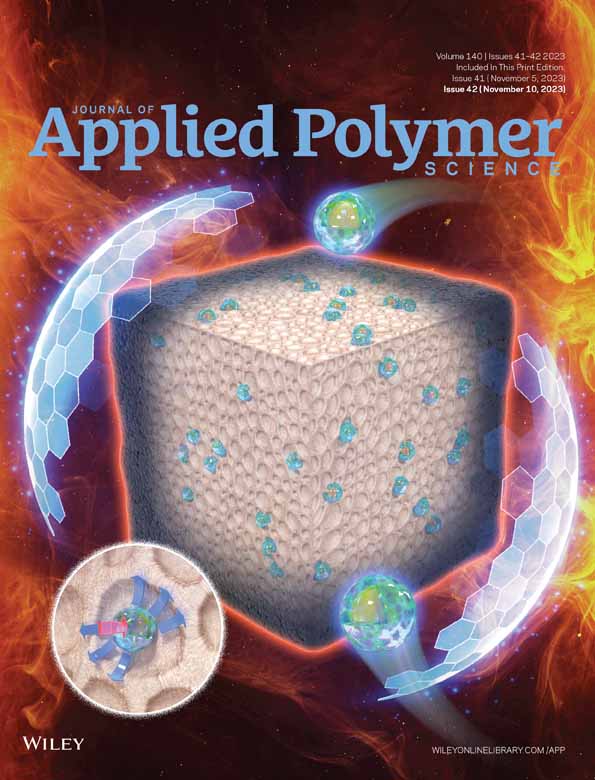Improvement of the rupture strength of MF shell microcapsule by incorporating TiO2 nanoparticles with an optimal content
Abstract
Microencapsulated phase change materials (MPCMs) are usually subjected to internal pressure caused by core volume changes or external mechanical stress during service. It is of great importance for individual microcapsule to achieve good mechanical performance to be effective in avoiding the leakage of core material and providing crucial protection to environment. Here, n-octadecane was selected as core material and different amounts of titanium dioxide (TiO2) nanoparticles were added into the melamine formaldehyde (MF) shell, forming n-octadecane@MF-TiO2 hybrid shell MPCMs by in situ polymerization. It has been confirmed that TiO2 nanoparticles had been well embedded in the network structure of MF shell. The doping of TiO2 is beneficial to the inhibition of supercooling and the improvement of the thermal stability for hybrid shell microcapsules. Microcompression tests were conducted to determine the rupture loads of prepared microcapsules. TiO2 nanoreinforcements increase the rupture loads of MF-TiO2 shell microcapsules and the improvement percentage in rupture load reaches a maximum of 138.14% at TiO2 content of 2 wt.% compared with pristine microcapsules. Crack deflection and pinning may account for the potential strengthening mechanism of the MF nanocomposites. The reinforced MPCMs will contribute to their more promising and widespread applications in thermal energy storage systems.
CONFLICT OF INTEREST STATEMENT
The authors declare that they have no known competing financial interests or personal relationships that could have appeared to influence the work reported in this paper.
Open Research
DATA AVAILABILITY STATEMENT
The data that support the findings of this study are available from the corresponding author upon reasonable request.




